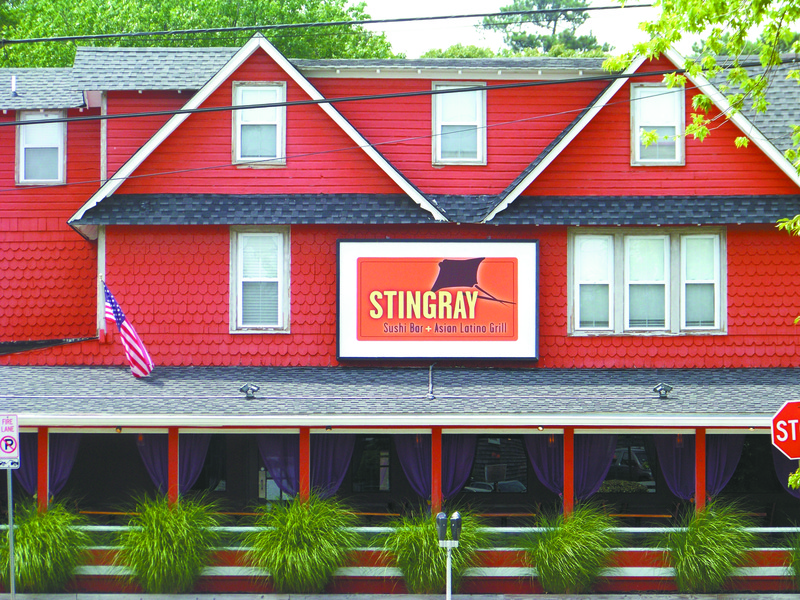Rehoboth, Stingray take patio battle to Supreme Court
Whether a Rehoboth Beach restaurant can build an outdoor patio is an issue now before the Delaware Supreme Court.
The Rehoboth Board of Adjustment is appealing a Superior Court decision overruling the board’s denial of a variance to allow Stingray, 59 Lake Ave., to build an outdoor patio.
City attorney Dan Griffith said the court had to consider two issues: whether Stingray needed a permit of compliance to build a patio and, if Stingray does need a permit, whether Stingray can build the patio without a variance.
Griffith focused mainly on the issue of whether Stingray needed a permit of compliance, required by the city before a restaurant can receive a liquor license. Griffith cited city code saying no one could construct a patio without a permit.
“In our opinion, that ends the analysis,” Griffith told the court Oct. 9. “There’s never been an explanation as to why Stingray believes it is excepted from the term ‘no one.’”
Stingray has maintained that as a grandfathered business – built before the zoning code was approved in 1991 – it did not need a permit of compliance. City code states that any significant extension or alteration of an existing restaurant requires a permit. Stingray attorney John Paradee has argued all along that the proposed patio was not an extension of the restaurant, an argument affirmed by Delaware Superior Court.
Stingray’s day in Supreme Court was the culmination of a two-year legal battle for the restaurant to build a 720-square foot outdoor patio. First, Stingray went to the Rehoboth commissioners for a permit of compliance and was denied. Stingray then appealed that decision and asked for a variance from the Board of Adjustment and was again denied. The next step was Superior Court, where Judge E. Scott Bradley overturned the board’s decision. Then it was the city's turn to appeal the decision to the Supreme Court.
In legal briefs and court arguments, Paradee said the board treated Stingray differently than restaurants in similar situations. He said restaurants such as The Cultured Pearl, Grotto Pizza and The Green Turtle – all nonconforming structures with a patio – were given variances with little resistance while Stingray was denied. Paradee added the other restaurants were new operations, whereas Stingray was still at the same location and as a result should not need to go through the permit of compliance process.
When asked by Justice Carolyn Berger why Stingray was denied and the other restaurants weren’t, Griffith said the board rules on a case-by-case basis and had found the other businesses had undue hardship or exceptional practical difficulties.
“There is no checkbox list that leads to the granting of a variance,” he said.
Griffith said even if the Superior Court decision were upheld, it would put Stingray in a bind in regards to the patio.
“It is in limbo, because the next step for Stingray to build this patio is to obtain from the state a license. In order to do that, the state requires a permit of compliance from Rehoboth Beach. The state says you don’t get a license without it,” he said.
Griffith said this would result in further litigation, since the city will be asked to provide certification by the state to show Stingray is in compliance with the code, which it isn’t.
In response, Paradee said Stingray has already applied for a patio liquor license with the Alcoholic Beverage Control Commission and that the commission has accepted Bradley’s ruling as the law.
“We are not in a stalemate,” Paradee said.
He said Bradley was correct in ruling that the patio is not an expansion of the restaurant, because the patio does not alter the internal building space. Paradee said while Bradley’s ruling acknowledged that putting tables and serving customers on a patio is an extension of the restaurant, the language of the code defines patios as outside the restaurant itself.
“It doesn’t seem to jive with common sense, but that’s what the code says,” Paradee said.
The five-justice panel has taken the matter under consideration before ruling. The court generally tries to make a ruling within 90 days of oral arguments.
Ryan Mavity covers Milton and the court system. He is married to Rachel Swick Mavity and has two kids, Alex and Jane. Ryan started with the Cape Gazette all the way back in February 2007, previously covering the City of Rehoboth Beach. A native of Easton, Md. and graduate of Towson University, Ryan enjoys watching the Baltimore Ravens, Washington Capitals and Baltimore Orioles in his spare time.






















































